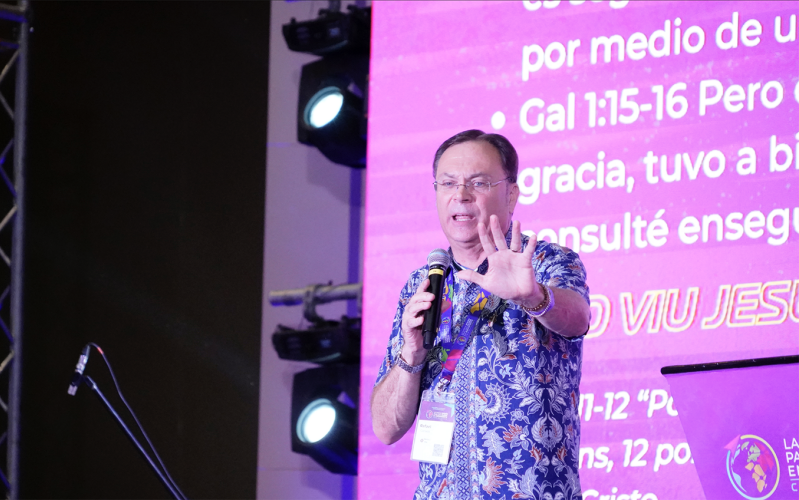
Speaking at the Ibero-American Missionary Congress COMIBAM 2025 this week, Rafael Canadá, director of mobilization for COMIBAM International, challenged evangelical churches to realign their focus with the mission of Jesus and avoid segmenting ministry into disconnected parts that stray from the Great Commission.
“His mission is our ministry,” Canadá said, emphasizing that the purpose of every church and Christian leader is to carry forward the work of Christ on earth. “The ministry of every pastor, the ministry of every youth leader, the ministry of every worship director, the ministry of every missionary — it is all the same mission,” he stressed.
In addition to his role at COMIBAM, Canadá serves as a mobilizer for churches and missionaries across Latin America and is also the director of Connect Global.
A call against ministry fragmentation
One of the most striking parts of Canadá’s address was his critique of the compartmentalization within Christian ministry. “We have segmented ministry. If someone studies to be a pastor, they go down one path. If they study missions, it’s another — as if they were entirely different callings,” he said.
He criticized how some churches have reduced the call to Jesus’ mission into a mere slogan. “We hang Matthew 28 on the wall, but we’ve never sent a missionary, never taken a mission trip, not even prayed for unreached nations,” he lamented. For the first disciples, he said, it wasn’t a slogan — it was a command that led them to give their lives for the gospel.
Acts as the church model
Canadá also challenged the professionalized model of the modern church, with its expensive structures, Sunday performances, and marketing strategies — systems that, in his view, often neglect the church’s essential mission. “We are the early church. They — the church in Acts — are the fulfilled church,” he said.
“They didn’t have buildings, screens, smoke machines, or lights. But they had the Spirit of God, they had the Word, and they fulfilled the mission,” he continued. According to Canadá, a true ecclesiology must arise from a strong Christology. “If Christ is Lord, then His mission must be our mission. That should shape our churches, not the other way around,” he said.
During his remarks, he lamented that many churches reduce the mission of Jesus to a decorative motto or an academic requirement. “The vast majority of our churches have never sent a single missionary, do not support one financially, and don’t even pray for missions,” he stated, questioning the lack of engagement with unreached people groups.
Rejecting false dichotomies and misguided theology
Canadá also spoke out against the division between “pastors” and “missionaries,” as if they represented incompatible vocations. “If we serve the same Lord, we share the same mission. Different locations, but the same calling,” he said.
He argued that many modern church models treat missions as optional, secondary, or even a threat to institutional growth. “It’s not about planting churches with our brand in every world capital. It’s about making disciples of all nations,” he said.
The speaker emphasized that the Great Commission “is not an option, but a command from the Lord Jesus Christ for all believers,” and called on churches to become actively involved in global missions. COMIBAM, he explained, works in key areas such as “training, sending, and caring for missionaries, as well as developing resources to support churches in this task.”
A final appeal: unity and purpose
Canadá concluded with a visual illustration: people pulling in different directions cannot move forward, but when aligned with the same direction — the mission of Jesus — the whole body advances together. “We weren’t called to a position, but to a mission,” he concluded.
With this message, Rafael Canadá shook the ministerial assumptions of many attendees at COMIBAM 2025, reminding them that the global task is neither optional nor secondary — it is the very heart of the church’s calling.
Originally published by Diario Cristiano, Christian Daily International's Spanish edition





